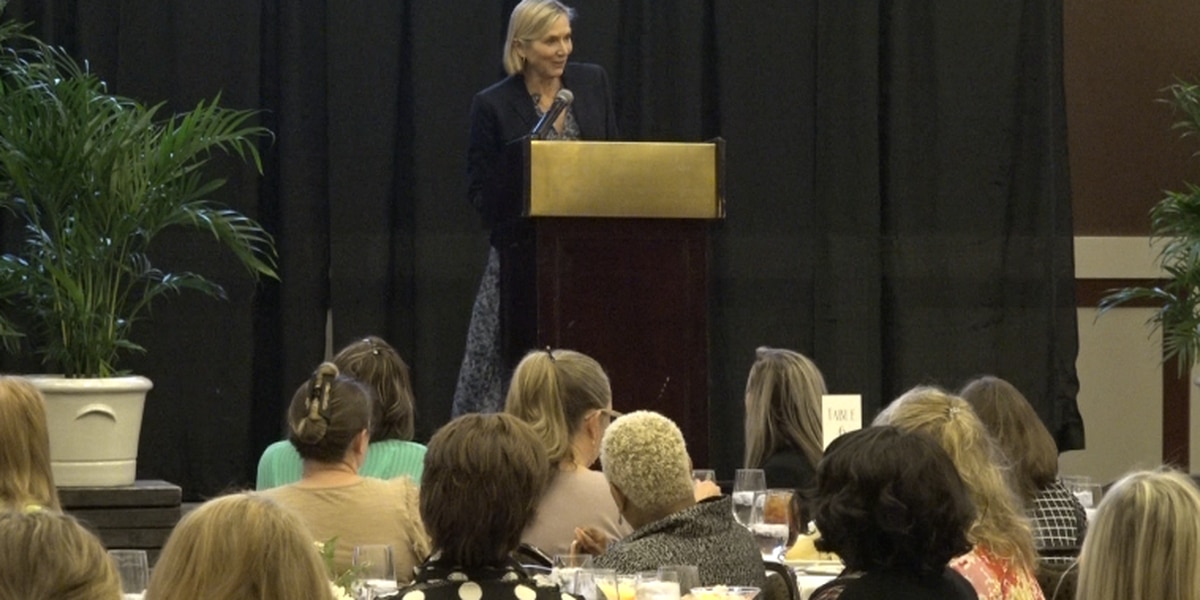Note: The following article contains discussion of themes including suicide that some readers may find upsetting.
Since the age of six, Harvey Steel had played in a football match every single week. The beautiful game was both his obsession and his identity. At 13, the teenage defender was signed to Cambridge United’s academy, and at 16 years old, he received a two-year scholarship to progress to the U18s team – a major step towards his dream of becoming a professional footballer and a massive relief after waiting months to receive the news. But going into his first year, the pressure to be better than his teammates grew to new and dangerous levels. When he found himself out of the team a few weeks in, the impact on his mental health was huge.
‘At that time, I didn’t want to go to football,’ says Harvey, now 20 and playing semi-professional football for non-league side Welwyn Garden City FC. ‘It was worlds apart from where I was two years ago. All I wanted was to be a full-time footballer, and it was so far from the dream it was unreal.’
As Harvey’s mental health declined, his mind en route to training would unconsciously drift to ‘bad thoughts’. He suffered in silence, worried that in the already competitive system, speaking up about how he was struggling would make him seem ‘weak’ to the very people who would decide his future. ‘When you’re 15, 16 you don’t want to have an uncomfortable conversation because you don’t really know how to,’ he says. ‘You don’t know how they’ll react and, especially in football, if it’ll mark your card. So you just end up plodding along.’
In his second year in 2019, with his mental state deteriorating further, Harvey bravely approached the club’s sports psychologist – who was also a coach for another age group at the academy. He says their discussions took place outside, on the training ground, in full view of his coaches and teammates. ‘I was the only one who saw him,’ Harvey says. ‘I was walking round the training ground telling this guy, who was dressed in a Cambridge United tracksuit, that Cambridge United made me really depressed and want to kill myself.’
Feeling that the sessions weren’t helping, Harvey stopped seeing him. Everything came to a head one night when he tried to end his life. ‘I got dressed to go and [take my life],’ he explains. ‘I put my Liverpool shirt on, put my Liverpool scarf on, put my coat on. I put on the clothes that I was going to [take my life] in.’
Harvey, thankfully, was saved by his brother’s timely intervention and sought external professional help with assistance from the Professional Footballers’ Association – the union for current and former footballers and scholars. His parents informed the club how bad things were. Cambridge was understanding, but looking back he questions why it was allowed to get to that point. ‘You look back and you think, yes you said all the right things, but did you really mean it? Were you really looking? Did you really care? Because there were so many warning signs and alarm bells you didn’t even act on. There was never a “pull him into the office and talk to him”,’ he says.
Harvey describes multiple red flags that could have been picked up on – from crying during a League Football Education session, to arriving late and generally displaying low confidence. The question is: why were these warning signs missed?
In England, an estimated 12,500 young people participate in the academy football system, with clubs awarded category ratings between one and four under the Premier League Elite Player Performance Plan. All top-tier, category-one academies must employ a full-time academy psychologist, and every English Football League club also employs a full-time head of player care. Each academy must also designate a mental and emotional wellbeing lead and ensure all age groups ‘receive education’ on the topic of mental health.
Casper Farrimond, a sports psychology consultant and lecturer, has worked with a category-one football academy, assisting players as they transition through the age groups. He holds one-to-ones with players and delivers psychoeducation workshops on topics such as resilience, growth mindset and confidence building. He also trains coaching staff on how to create a positive environment. He says that as mental health is becoming more intrinsic within coaching, things are improving. ‘Mental health first aid is now a fundamental course you need to go on, whereas four or five years ago, that wasn’t the case,’ Farrimond says. Teaching how to better understand emotions and spot signs that an athlete is struggling have also become a component of coaching badges. Ultimately though, the level of support often comes down to individual clubs’ financial resources.
Duty of care for the minors they sign, and develop, has been in the spotlight following several deaths of former academy players. Jeremy Wisten, a former Manchester City youngster, was just 18 when he took his own life in October 2020. His premature death raised questions about the pastoral support offered to players who have been released – some after being signed from as young as nine – and prompted Manchester City to introduce player exit surveys as well as a ‘parent portal’.
Meanwhile, a 2021 study of elite young footballers in development programmes found that ‘psychological stress, anxiety of competition, disruption to family life, demanding schedules, physical exhaustion and abusive relationships with coaches’ are some of the many challenges that impact wellbeing.
In wider society, candid discussions around mental health are becoming more frequent, but, whether it be from external pressures or those within the game, in football academies, the stigma surrounding mental illness appears to persist. For many, the fear of being perceived as weak or not cut out for professional football is still a major barrier to opening up.
Farrimond says he sees this across a range of sports, but with the number of children on the books of football clubs, the stigma is more pronounced. ‘Coaches always say very early that there’s a 1% chance that you’ll make it. I think from a stigma point of view, or cultural point of view, you’re already instilling into the players’ mindset that there’s a very small chance and the players don’t want to have any reason that will prevent them from moving forward or allowing them to transition to a professional career.’
He explains how the neurology of male adolescents also contributes. ‘They start to try to explore themselves and work out who they are as an individual. At the same point, they’re having coaches trying to work out whether they’ve got a future in football,’ he explains. ‘Identity and self-worth become solely based on athletic performance and meeting the expectations of significant others, such as coaches.’ With these two huge life moments coinciding, Farrimond suggests boys of this age are at the mercy of the social environments created by coaches.
That was a worry faced by Fabio Sole, 21, whose mental health suffered due to bullying while at the then category one Reading FC Academy. In his early teens, Fabio was at the peak of his game: the midfielder was playing for England and was sponsored by Adidas. Having been an early developer, the bullying he experienced at the hands of other academy players started when his peers began catching up. Fabio has previously explained that he would cry in the toilets before training but hid what he was going through from Reading as much as possible.
‘I didn’t want to speak to anyone [at the academy] in case it would affect things. And then it just got to a point where it was quite bad and I decided that I wanted to speak to someone external,’ he says. ‘[Reading] had a psychologist on their payroll, so you can go and speak to them, but a lot of players don’t do that in case things get back to the coaches.’
When Fabio did approach the club about his struggles and requested to leave, rather than being met with assistance and empathy, he felt the club was actually offended. Determined, he persevered and returned the following season in a better place mentally to begin the second year of his scholarship, but says he was told by coaches he wouldn’t play a single game due to his request to leave. ‘I didn’t receive the help that I needed at the time, so it was the best decision to leave. I guess it was partly them and partly the fact it’s hard to heal in an environment where you’ve been broken,’ Fabio explains. Ultimately, he took the decision to move to another team in 2019.
‘A lot of coaches create an environment where you’re afraid to make mistakes and afraid to say something to them. That really can create negativity in the minds of young girls and boys in football,’ says Marc Lamberts, a UEFA-licensed coach, scout and analyst. Lamberts has worked with academies in both the UK and the Netherlands and witnessed academy youngsters hiding mental health issues from staff.
For the players within the system, actions speak far louder than words. Harvey believes they simply aren’t made to feel as though they can open up, without it harming their future prospects. ‘I don’t think clubs and academy staff are honest with themselves when it comes to mental health because I still think they do judge,’ he explains. ‘It’s just a fact – if you’ve got someone who’s good at football and no trouble, or you’ve got Harvey who’s good at football but he’s got a bit of excess baggage and mental health issues, 100% they’d look past you.’
Thankfully, both Harvey and Fabio are in better mental health today, but based on their academy experience, they feel the onus should be on clubs to empower youth players to open up. Whether that’s, as Fabio suggests, mandatory bi-weekly sessions with a therapist – even if they have no immediate worries – or being more proactive in looking for any signs of poor mental health, players need to feel safe and respected in their vulnerable moments.
One way to do that is for coaches to normalise vulnerability by modelling how to discuss their emotions. Another important factor is cognitive detachment. ‘For athletes to psychologically recover from intense sport, they need to be able to fully detach from sport on a daily basis,’ Farrimond explains. Fifteen minutes per day is often enough to recharge, and it’s a strategy he wants more clubs to promote.
When it comes to children in the system, the majority won’t make it. But, by taking a more holistic approach to coaching, the experience shouldn’t break them either. ‘We’re all guilty of looking past someone because they’re a bit of hassle. But I think the difference is with footballers at that age, you’re dealing with young kids. You’re still a kid at 15, 16,’ Harvey says. ‘Academy staff need to realise that they’re shaping a human for the future. They need to stop looking at it so black and white and have uncomfortable conversations.’
A spokesperson for Cambridge United says: ‘Cambridge United is very sorry to hear that one of its players did not receive the necessary emotional support required regarding their mental health.
‘We pride ourselves as being a football club which embeds mental health awareness and support into our day-to-day operations – and aim to be a leader role on the issue – so would like to pass on our sincere apologies for this failing.
‘We will seek to make contact with the player to understand more about what happened, how we can learn from it and what support – if any – we might be able to offer him now.
‘Our mental health provision has markedly improved over the past few years with a number of new and vital steps put into place. These developments include all staff being offered mental health awareness training, the formation of a wellbeing working group – which includes departmental ambassadors – and the appointment of the Academy’s first ever player care manager, whose primary role is to provide off-field support for current and former players.
‘We are aware that there is always more to be done but we are constantly striving to improve as we recognise the importance of holistic support of all of our players and staff.’
A Reading Football Club spokesperson says: ‘At Reading Football Club, our Academy has always placed the mental and physical health of its players and staff at the very forefront of its operations.
‘We are very confident in the robust procedures we have in place for young players representing our club and we will continue to treat the wellbeing of all our employees with the importance it deserves.’
An English Football League spokesperson says: ‘The EFL recognises the importance of mental health across all forms of the game and are committed to supporting our clubs, academies, players and staff to ensure a mentally healthy environment throughout our 72 clubs.
‘As part of this, we have put extensive measures in place and work alongside League Football Education and organisations such as Sporting Chance to provide care programmes and psychological support to academy players. Those Academies which operate in school age groups also have a full-time head of player care and EFL clubs and their staff receive education and training to include identification of mental health issues.
‘Our partnership with Mind was instrumental in creating a significant cultural change towards mental health within football and we remain dedicated to ensuring the EFL is a safe and positive experience for all.’
The League Football Education did not respond to a request for comment.
We would encourage anyone who identifies with the topics raised in this interview to reach out. Organisations who can offer support include Samaritans on 116 123 (www.samaritans.org) or Mind on 0300 123 3393 (www.mind.org.uk). Readers in the US are encouraged to visit mentalhealth.gov or the American Foundation for Suicide Prevention.

















